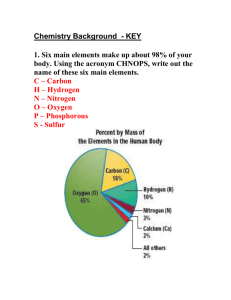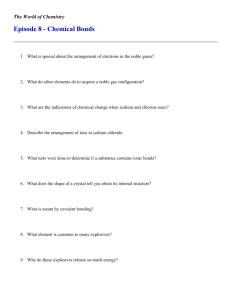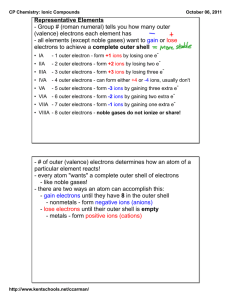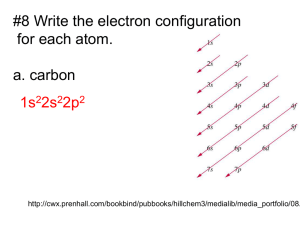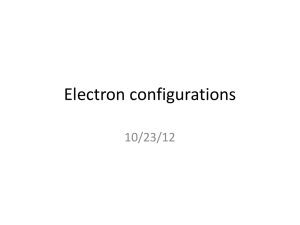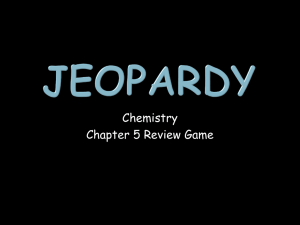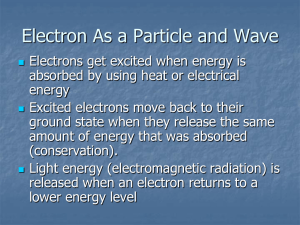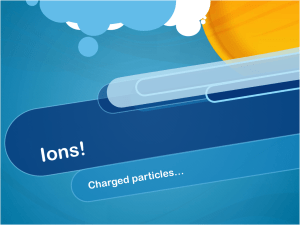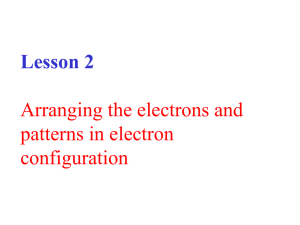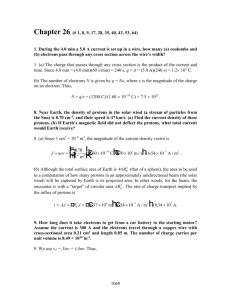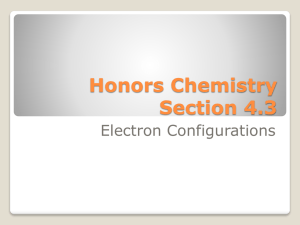Bohr Diagrams of Ions
advertisement
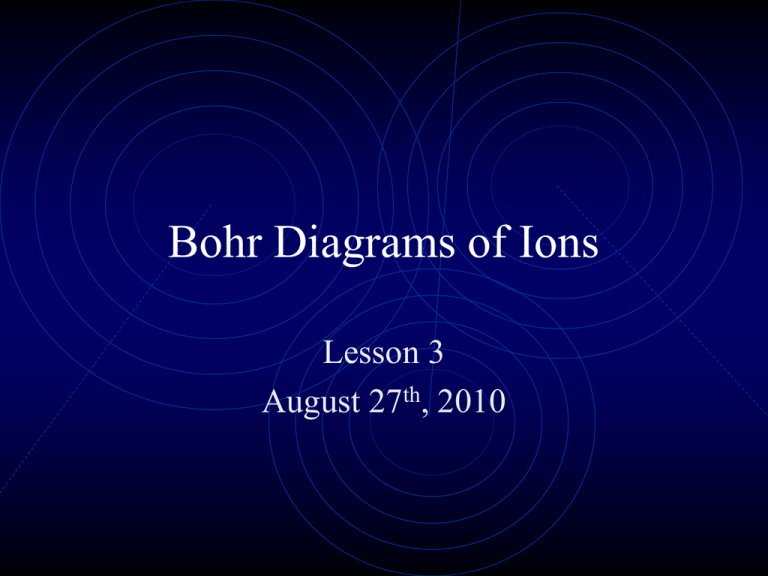
Bohr Diagrams of Ions Lesson 3 August 27th, 2010 Positive and Negative Ions • Noble gases do not form compounds because they have 8 electrons in their outer orbit (shell). This electron arrangement makes them very stable and so they do not react. N 10 P 10 • When elements form compounds, changes occur in the arrangement of electrons in the outer orbit. – Electrons are gained or lost so that element can have a stable electron arrangement of the closest noble gas. (In other words it will completely fill their outer shell with electrons) • In order for a compound to be stable, it must have a completely filled outer electron shell– aka (stable octet) • Arrangement of outer shell electrons of metals and nonmetals Metals • Tend to have 1, 2, or 3 electrons in the outer orbits (shells) • They lose electrons when they combine with other elements to form positive ions (cations) : note the t in the word think + • They lose electrons, thus they have the same electron arrangement as the Noble gas a row above them Metal Ion Example • Sodium: Na Na+ N 12 N 12 P 11 P 11 Non-Metals • Non-metals – Tend to have 4, 5, 6, or 7 electrons in their outer orbits (shells). • They gain electrons to form negative ions (anions) • They gain electrons, thus they have the same electron arrangement as the Noble gas in the same row. • Example • Fluorine : F F- N 10 N 10 P 10 P 10 Homework • Draw the ions of the first 20 ions of the periodic table
